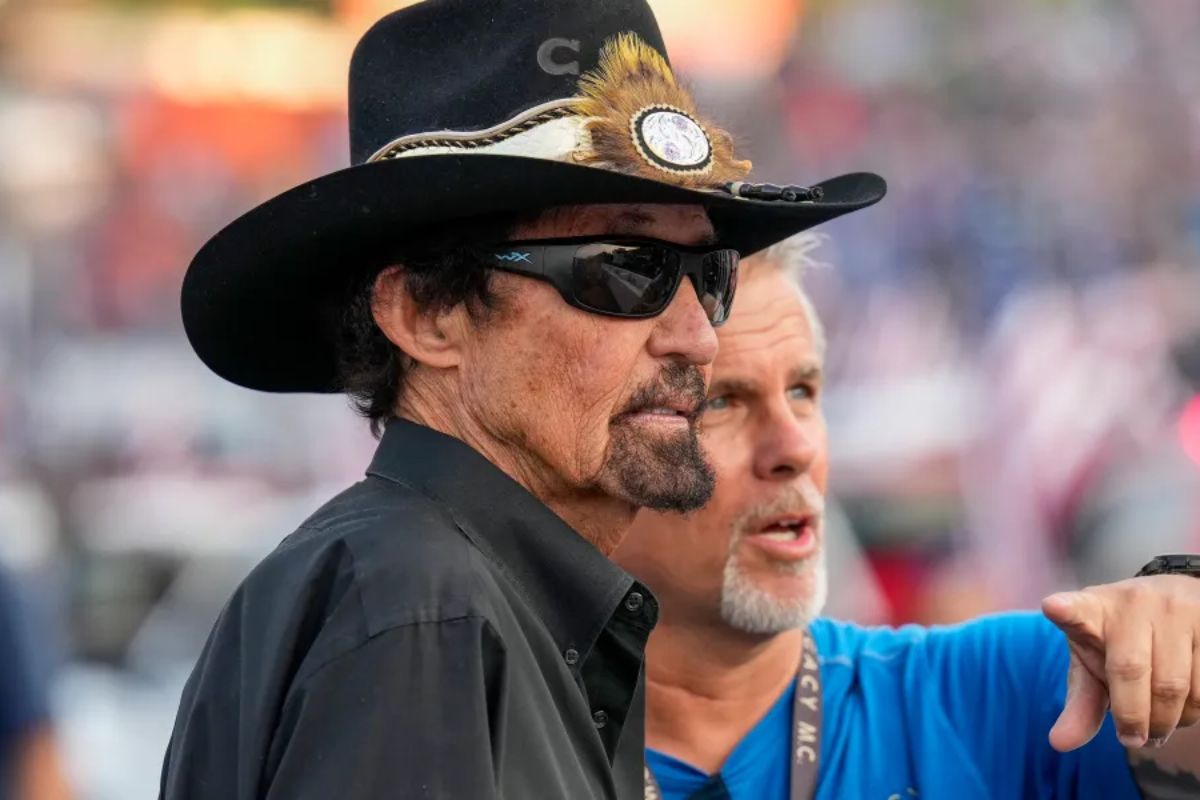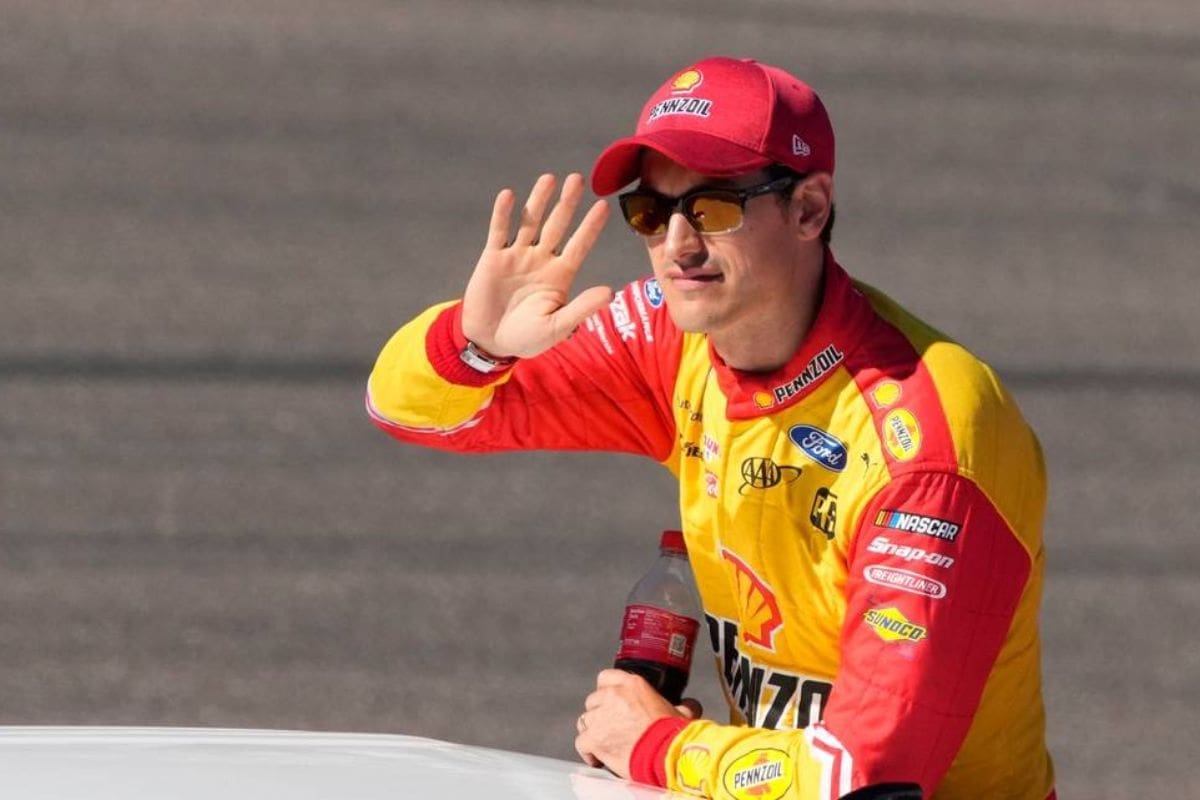Richard Petty Slams Austin Dillon’s Richmond Incident: Richard Petty‘s recent comments regarding Austin Dillon‘s controversial actions at Richmond encapsulate the intricate dynamics of competitive racing, where the line between strategy and desperation can often blur. Petty’s assertion that Dillon is ‘getting desperate’ not only critiques his aggressive tactics but also invites a broader examination of the psychological strains drivers face as they navigate such scenarios. This incident raises compelling ethical questions about the nature of competition in NASCAR, prompting a discussion on the balance between assertiveness and sportsmanship in a sport defined by its intensity.
Key Highlights
- Richard Petty described Austin Dillon’s move at Richmond as a sign of desperation in racing situations.
- The single caution with two laps left raised concerns about competitive ethics among drivers.
- Petty highlighted how Dillon’s aggressive tactics disrupted his chance for victory due to the caution.
- The incident illustrated the fine line between calculated risk and reckless behavior in NASCAR.
Richard Petty’s Take on Dillon’s Move
Richard Petty’s insightful analysis of Austin Dillon’s controversial tactic at Richmond Raceway highlights the desperation that can drive drivers to make bold, albeit questionable, decisions in high-stakes racing situations.
In a race characterized by its single caution with just two laps remaining, Dillon’s aggressive tactic against established competitors Joey Logano and Denny Hamlin raises significant questions about competitive ethics and the psychological strain inherent in the sport.
Petty articulated that Dillon’s actions stemmed from a sense of urgency, emphasizing how the unpredictable nature of racing can provoke instinctual responses. ‘He’s getting desperate, I guess. He should have won the race,’ Petty remarked, stressing that Dillon had shown the capability to secure a victory throughout the event. The caution disrupted what appeared to be a straightforward path to success, compelling Dillon to reassess his strategy in a split second.
“He had a good enough car, he ran up front all day… and he was gonna be the winner. And then they had that caution and that confused everything.” – Petty
The analysis reveals an important truth about motorsport: the thin line between calculated risk and reckless behavior is often blurred in moments of intense strain.
While Dillon might defend his actions as a necessary gamble to clinch his initial win of the season, Petty’s perspective challenges the narrative, suggesting that such tactics may tarnish the integrity of the sport.

Petty’s Commentary on Dillon’s Actions
Petty’s commentary on Dillon’s actions highlights the fine line between tactical navigation and outright aggression in the high-stakes context of NASCAR racing.
As Dillon operated aggressively during the Richmond race, Petty characterized his actions as indicative of a driver in desperation. The phrase ‘he got desperate‘ resonates deeply in a sport where calculated risks can yield rewards or lead to catastrophic outcomes.
“If nothing else, he got desperate. He just drove that thing… caught up three or four car lengths going in a corner.” – Dillon
Dillon’s attempts to regain control after a caution, particularly his contact with Joey Logano and Denny Hamlin, reveal a vital element of NASCAR dynamics: the tactical use of bumping. Petty’s assertion that Dillon’s spins were ‘definitely intentional‘ emphasizes the reality that drivers often face a critical choice—whether to prioritize personal gain at the expense of others or to adhere to the unwritten rules of racing.
“It was definitely intentional spin on both of ’em.” – Petty
FAN QUESTION: What did you think of the 3 wrecking two cars to win?
Via X user, @TheCincyBuckeye.
Tune-in to https://t.co/iYjXyLiNEi tomorrow at 8am to see the newest edition of the Petty Race Recap. pic.twitter.com/nFAABn8DRH
— Richard Petty (@therichardpetty) August 12, 2024
The confrontation with Logano, who capitalized on the restart to overtake Dillon, highlights how quickly fortunes can shift in this environment.
Moreover, Petty’s analysis suggests a broader narrative about the strains drivers face in competitive settings. Dillon’s aggressive tactics may stem from a fierce desire to secure a win, yet such actions risk alienating peers and inviting retaliation.

Joey Logano’s Reaction to Dillon’s Tactics
Joey Logano’s vehement criticism of Austin Dillon‘s aggressive tactics highlights the heightened tensions that often accompany high-stakes racing, where the line between tactical navigation and reckless endangerment can become alarmingly blurred.
Logano, a seasoned competitor, expressed his outrage following an incident in which Dillon’s maneuvering not only jeopardized his own race but also resulted in a collision with Denny Hamlin. His choice of words—calling Dillon’s actions ‘chicken st.’—reflects a broader frustration within the NASCAR community regarding the ethics of aggressive driving.
“It’s chicken sh*t. There’s no doubt about it.” – Logano
Logano’s assertion that Dillon was ‘four car-lengths back’ before making contact emphasizes the perceived recklessness that can escalate in the heat of competition. Such tactics, while not uncommon in the sport, invite scrutiny as they challenge the unwritten codes of conduct among drivers. The reference to Dillon’s subsequent celebration with his family exemplifies a disconnect between the gravity of racing decisions and the personal victory that often follows.
“He’s four car-lengths back, not even close. Then he wrecks the 11 (Denny Hamlin) to go along with it. Then he’s gonna go up there and praise God and everything with his baby, it’s a bunch of B.S. It’s not even freaking close.” – Logano
Moreover, Logano’s argument transcends a mere personal grievance; it highlights a critical dialogue about the integrity of racing. The dichotomy between tactical aggression and a blatant disregard for others’ safety raises questions about how far drivers should go to secure success.
“I get it, bump and run. I get it. I didn’t back up the corner at all. He came in there and just drove through me. It’s ridiculous that that’s the way we race. Unbelievable.” – Logano
A look at the finish of Sunday's race at @RichmondRaceway. pic.twitter.com/ZCM5eaokwR
— NASCAR (@NASCAR) August 12, 2024
As champions like Logano vocalize their discontent, they remind both participants and fans that the spirit of competition should not come at the expense of sportsmanship or safety. In this charged atmosphere, the repercussions of reckless tactics resonate beyond the track, influencing the sport’s future landscape.
Current Standings and Playoff Status
As the NASCAR season approaches its vital playoff phase, the current standings reveal a competitive landscape, with drivers like Denny Hamlin securing strong finishes while others, such as Joey Logano, grapple with the impact of recent incidents on their rankings. With only three races left before the Round of 16 opener at Atlanta Motor Speedway on September 8, each position gained or lost becomes increasingly noteworthy.
Denny Hamlin’s consistent performances have solidified his playoff berth, positioning him as a formidable contender. His 2-place finish not only enhances his confidence but also reinforces his team’s momentum heading into the playoffs.
In contrast, Joey Logano’s relegation to 19th place highlights the precarious nature of standings in NASCAR, where a single misstep can dramatically alter one’s prospects. Logano’s recent struggles may raise concerns about his team’s strategy and execution, which will need to recalibrate quickly to regain their competitive edge.
As the playoff picture begins to crystallize, attention also turns to other drivers who have locked in their spots, leaving the remaining races pivotal for those still vying for a chance at glory. The stakes are high, with every lap becoming a chess match of skill and strategy.

News in Brief: Richard Petty Slams Austin Dillon’s Richmond Incident
The incident involving Austin Dillon at Richmond serves as a crucial moment in NASCAR, illuminating the fine line between aggression and recklessness.
Richard Petty’s insights emphasize the psychological complexities drivers navigate, particularly under stress.
The reactions from Petty and Joey Logano reflect broader concerns regarding competitive ethics in racing.
As the playoff landscape evolves, the implications of such actions will certainly influence not only individual standings but also the overarching narrative of sportsmanship in the sport.
ALSO READ: NASCAR Blamed for Austin Dillon’s Poor Sportsmanship: “Season in the Toilet!”

